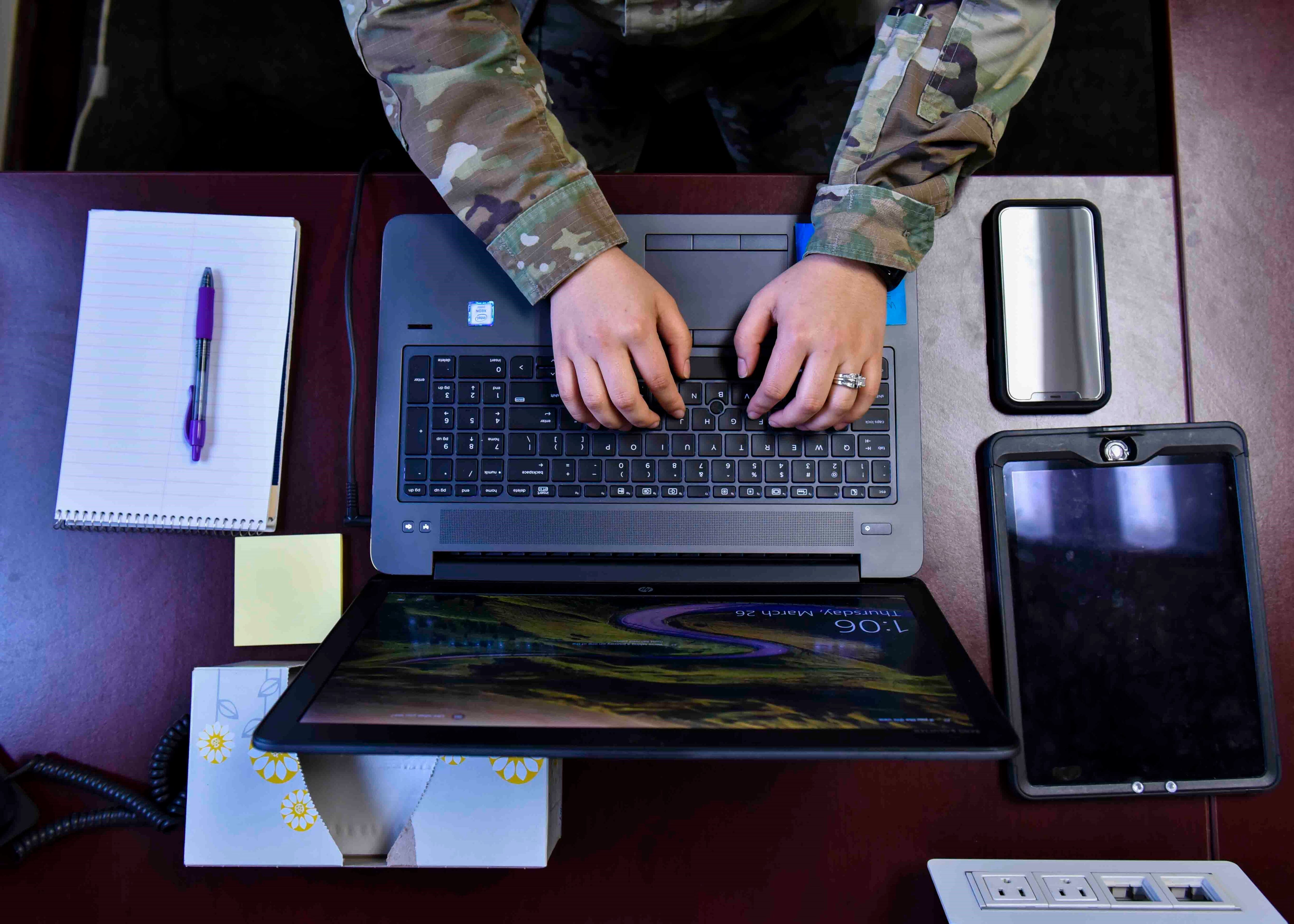The Army is expected to roll out a capability that will allow employees to remotely access sensitive and classified information in the next 30 days.
The decision to establish remote classified access comes as the COVID-19 pandemic continues to keep Americans working from home and military leaders prep for a second wave of the virus in the fall.
The new capability will allow remote users to access non-classified but sensitive information as well as classified information up to the secret level from remote locations, including at home, Maj. Gen. Maria Barrett, the commander of Network Enterprise Technology Command, told C4ISRNET in a statement.
The Army will be onboarding the first 500 users in the next 30 days, and it plans to eventually scale up to 2,000 users, according to Barrett. NETCOM is working with the Army CIO/G-6 and 7th Signal Command — which is responsible for defending Army networks in the United States — to gather “user requests for prioritization,” Barrett said, adding that the environment is “currently operational with initial onboarding and testing.”
“Based on location, the service will likely work better for [contiguous United States] users; it is our intention to test performance with [outside contiguous United States] users before issuing this as an offering [outside the contiguous United States],” Barrett said.
She added that the “majority” of the devices accessing information will be virtual desktops with no data stored on the end user device, though some will have data storage capabilities to allow users to work offline.
Lt. Gen. Bruce Crawford, Army chief information officer/G-6, said on a webinar in early June that before the coronavirus pandemic, the Army was “probably a year and a half” away from rolling out this capability, but the crisis accelerated that timeline.
The Army’s deployment of a remote environment to access classified information follows a similar effort by the Air Force. In April, the pandemic forced the Air Force to send thousands of unclassified devices to users as part of its Advanced Battle Management System. The devices were meant to be demonstrated as part of an April ABMS test, but that was delayed due to the pandemic.
The remote classified access capability is one of several adjustments the Army has made as the service adjusts to the effects of the pandemic. At the beginning of the pandemic, the service had 800,000 telework -enabled employees on Defense Department network and experienced a 400 percent increase in network access.
Other top IT leaders across the services are preparing for a second wave of the coronavirus in the fall. Vice Adm. Nancy Norton, director of the Defense Information Systems Agency, which manages Department of Defense networks, said in a webinar earlier this month that she’s working with industry to identify future chokepoints and has been asking DoD components what they need to boost telework capacity.
On the same June webinar, Crawford stressed that the telework environment would be around long term and that the service needs to ensure its workforce can continue to operate remotely. He added that Army users “deserve” access to “any data from any device.”
“It’s our job to decide how we’re going to enable them and more importantly,” Crawford said, “how we’re going to secure it.”
Andrew Eversden covers all things defense technology for C4ISRNET. He previously reported on federal IT and cybersecurity for Federal Times and Fifth Domain, and worked as a congressional reporting fellow for the Texas Tribune. He was also a Washington intern for the Durango Herald. Andrew is a graduate of American University.








